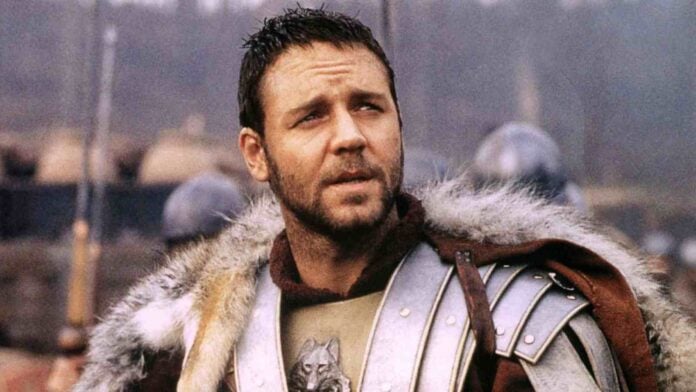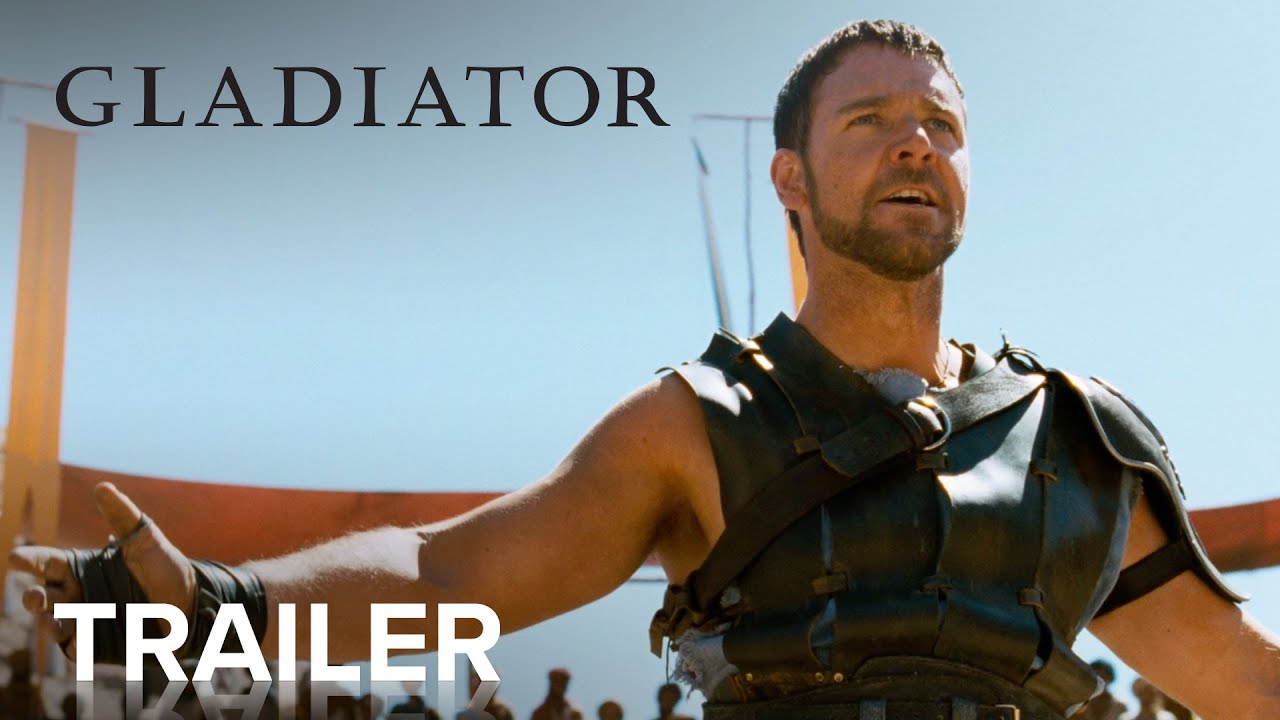‘Gladiator’ is considered one of the greatest movies ever made for its epic story of treachery, retribution, and redemption. Directed by Ridley Scott, the story found its roots in the ruthless culture of ancient Rome. The movie was released in 2000, and finally, the fans are getting ‘Gladiator II’, which is all set to release on November 15, 2024.
Starring Russell Crowe in the lead role, ‘Gladiator‘ managed to stun the audience with its glorious narrative and cinematography. However, questions were raised about the degree to which it accurately depicted reality. So, in what ways does the film draw inspiration from real-life events and historical individuals, and how much does it deviate into imaginative territory?
Related: 5 Great Historical Series To Watch Next If You Loved ‘Shōgun’
The Main Characters: Fact And Fiction
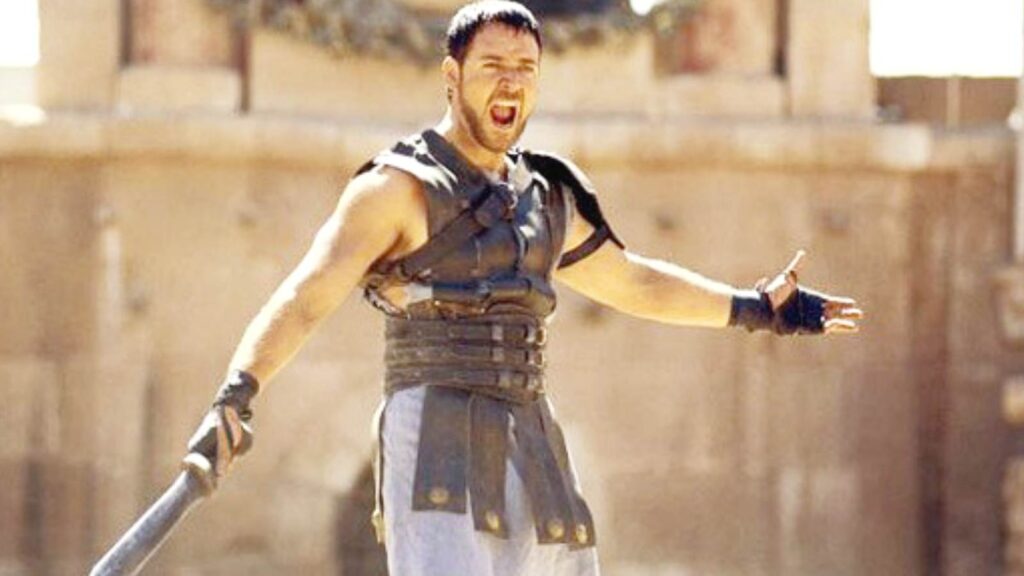
The fictitious figure of Maximus Decimus Meridius, portrayed by Russell Crowe, in ‘Gladiator‘, is a celebrated character in the history of cinema. However, no historical account exists of a Roman commander who became a gladiator and overthrew an emperor to exact revenge on his family. Although Joaquin Phoenix’s Emperor Commodus is based on a genuine historical person.
In 180 AD, Commodus became the emperor of Rome after his father, Emperor Marcus Aurelius, passed away. In the past, Commodus was well-known for his unpredictable and antagonistic ways. He also had an interest in gladiatorial fighting and took part in the arena personally, but historians believe that matches were set up in a way to guarantee his victory. In contrast to the movie, Commodus did not kill his father; instead, Marcus Aurelius passed away from natural causes, most likely the plague.
In case you missed: Who Was Napoleon And Why Is He Famous?
The Reign Of Commodus
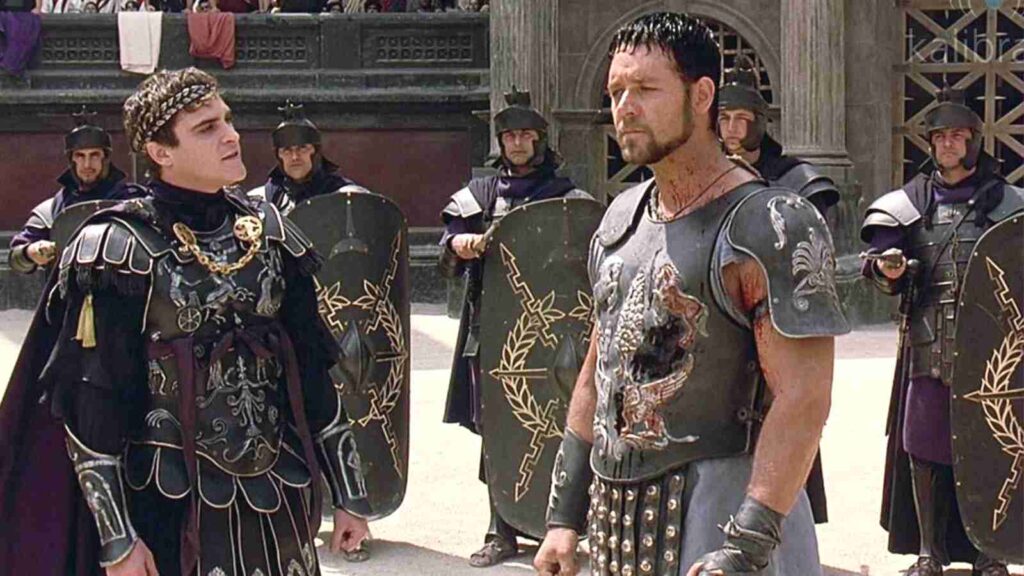
Commodus is portrayed in the film as a despot whose rule pushes Rome into collapse. This storytelling has some truth to it. Under his rule, the civilization descended into political unrest, and corruption, and witnessed a downturn in the economy. His unpredictable actions and conceit made him unpopular among the Senate and the upper class. Mind this, it was a violent time in Rome and the troublemaker was Commodus and his authoritarian inclinations and fixation with being viewed as a gladiator.
The Gladiatorial Games
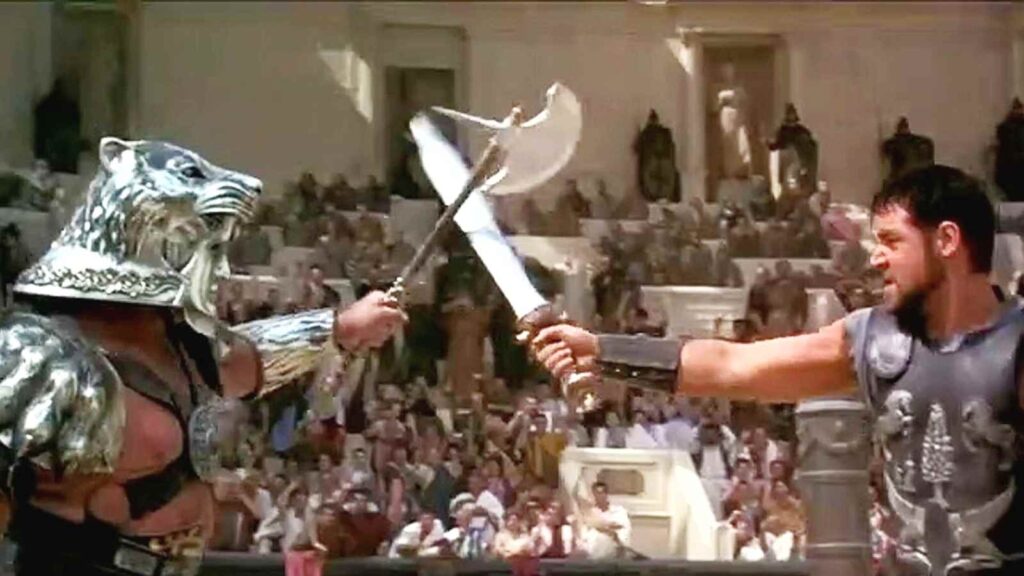
‘Gladiator‘ masterfully depicts the cruelty and spectacle of the gladiatorial games, which were a big aspect of Roman society. Large venues like the Colosseum hosted these gladiatorial contests, where gladiators—often slaves, prisoners of war, or convicted criminals—fought to the death in front of the audience. The film’s portrayal of the games, despite some exaggerated details for dramatic purposes, manages to capture the fury and grandeur of these events.
In case you missed: Jude Law Wore Perfume With “Blood, Sweat, And Fecal Matter” For His Role As King Henry VIII In ‘Firebrand’
Maximus And The Roman Army
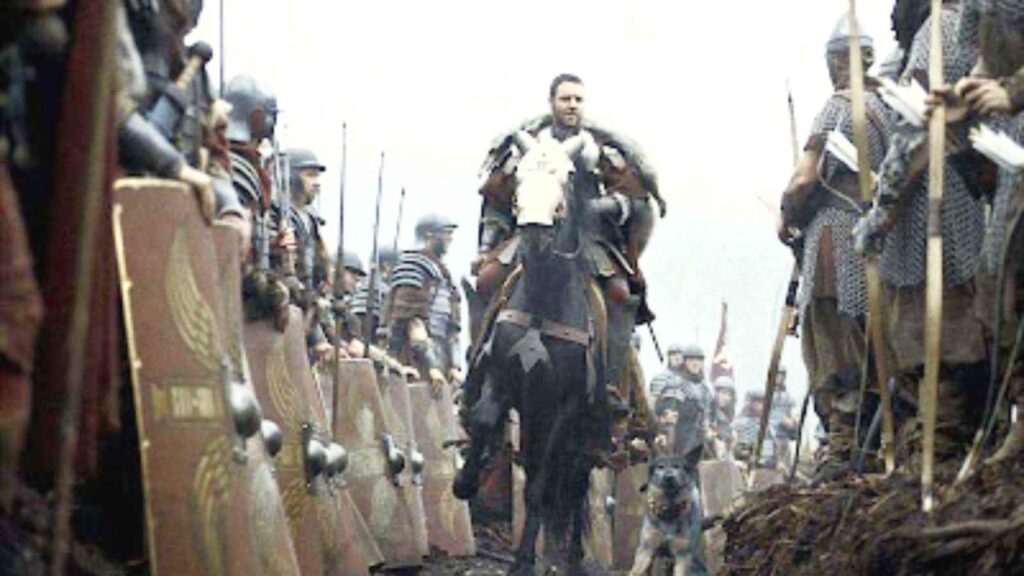
Maximus is a fictitious character, although his Roman army generalship is genuine. Roman generals were vital to empire expansion and defense at that time. The soldiers respected and loyally obeyed generals like Maximus because the military was well-structured. In the opening combat sequence of ‘Gladiator‘, Roman soldiers fight Germanic tribes, based on the Roman Empire’s northern battles. A deep dive into Roman army tactics and discipline reveals the military skill that helped construct and preserve its empire.
The Legacy Of ‘Gladiator’
‘Gladiator‘ is a fusion of historical truth and fiction that captures the spirit of ancient Rome while using artistic license to heighten the dramatic appeal. Despite the fact that characters like Maximus are made up, the movie does a great job of depicting the society of ancient Rome, emphasizing its complicated political system, cruel entertainment system, and formidable military.
You might also like to read:

